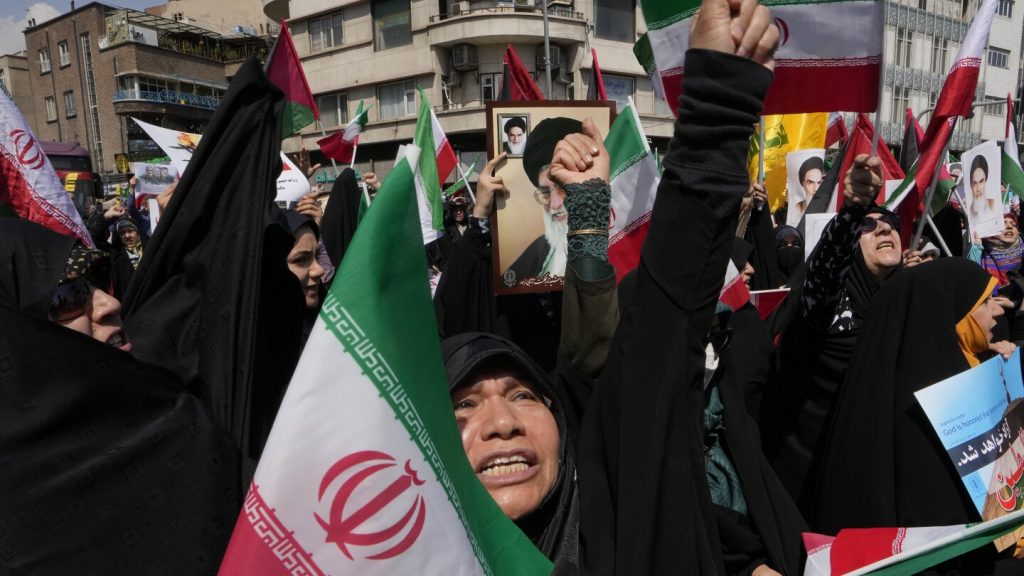World leaders have called on Iran and Israel to avoid escalating tensions following an Israeli airstrike near an Iranian airbase and nuclear facility. The Group of Seven foreign ministers meeting in Italy warned of potential new sanctions against Iran for its recent attacks on Israel and urged both sides to avoid further conflict. The situation escalated with an apparent Israeli strike on Iran where troops fired air defenses near the central city of Isfahan. Israel also conducted a missile strike on an air defense unit in southern Syria. These actions came in response to Iran’s unprecedented drone and missile assault on Israel, leading to increased regional tensions since the start of the Israel-Hamas war on October 7.
The tensions have continued to rise with an airstrike on a base used by Iran-allied militias in Iraq, resulting in three injuries. The attack on the Kalsu military base north of Babylon, currently used by the Popular Mobilization Forces, sparked concerns about the involvement of U.S. forces. The PMF is a coalition of primarily Shiite, Iran-backed armed groups that have been engaged in conflicts with U.S. forces in Iraq and Syria. Meanwhile, the Israeli military is investigating the deaths of two Palestinian detainees arrested in Gaza, further escalating the situation.
World leaders, including the Group of Seven foreign ministers and leaders from the Middle East, have urged Iran and Israel to show restraint and avoid an escalation of conflict. Jordan’s deputy prime minister emphasized the need to ease regional tensions and ensure Jordan does not become a battleground for Iran and Israel. Russia has also communicated with both Iran and Israel, stating that Iran does not seek further escalation despite responding to Israeli attacks. Additionally, Britain, Germany, and China have called for both sides to avoid worsening the conflict and for calm to prevail in the region.
A military raid by Israel on a refugee camp in the West Bank led to the deaths of at least four Palestinians, including three militants. The ongoing violence in the region has resulted in numerous casualties and heightened tensions. A pro-Israel think tank in Washington believes that the recent Israeli strikes on Iran show a limited response and suggest that Israel does not seek further escalation at this time. This sentiment is echoed by the head of the U.N. atomic watchdog, who reported no damage at the Isfahan nuclear facility after the Israeli attack.
The situation remains volatile, with missile remnants found southwest of Baghdad and S&P downgrading Israel’s long-term credit rating due to the risk of military escalation with Iran. Turkey’s President Erdogan criticized the statements made by both Iran and Israel as illogical and expressed concerns about the U.S. support for Israel in the ongoing conflict. U.S. Secretary of State Antony Blinken clarified that the U.S. was not involved in offensive operations but reiterated the commitment to defending Israel. Israel had reportedly given the U.S. last-minute warning about the drone attack on Iran, as shared by Italy’s foreign minister during a Group of Seven meeting. The situation continues to evolve with multiple parties involved in efforts to de-escalate tensions between Iran and Israel.


